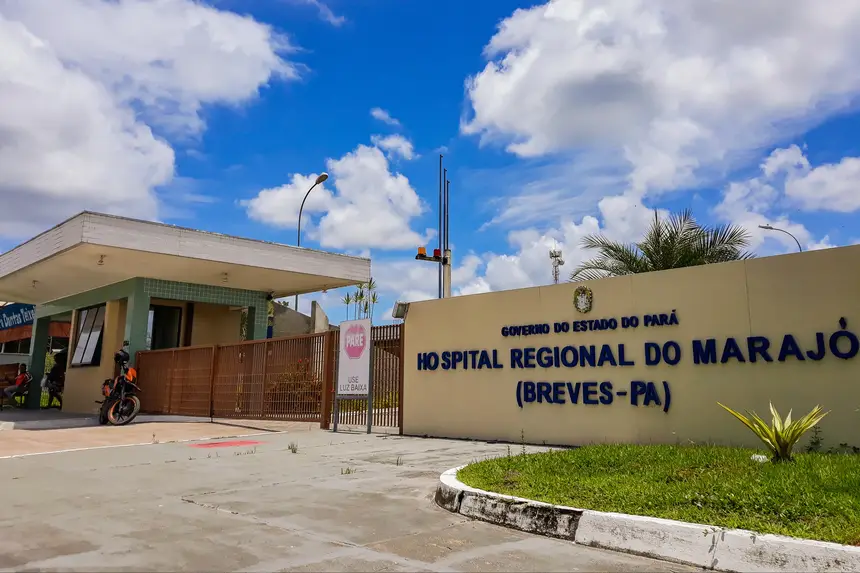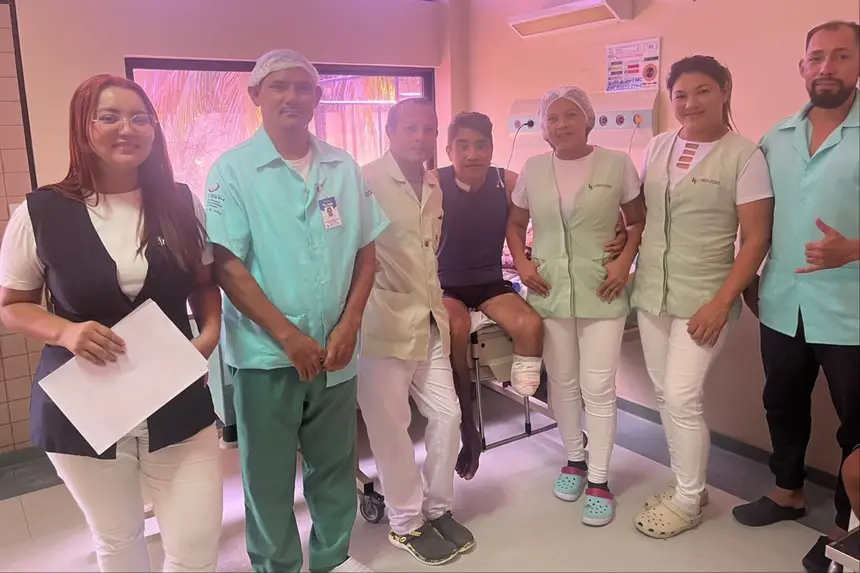HRPM celebrates 15 years with over 3.8 million services to the Marajó population
The unit in Breves is a reference in public health in the region and stands out for quality certifications, innovation, and sustainable actions
The Government of Pará, through the State Secretariat of Public Health (Sespa), celebrated on Thursday (25) the 15 years of operation of the Regional Public Hospital of Marajó (HRPM), located in Breves. Since its inauguration in 2010, the unit has surpassed the mark of 3.8 million services, benefiting more than 340,000 inhabitants of the municipalities linked to the 8th Regional Health Center (CRS), consolidating itself as a reference in medium and high complexity in the region.

With a user satisfaction rate of 99.4%, HRPM reaffirms its importance for strengthening the Unified Health System (SUS) in Marajó, combining quality care, humanized reception, and commitment to life.
“The Regional Public Hospital of Marajó is a milestone in the interiorization of quality public health in Pará. Celebrating 15 years of services provided with over 3.8 million services is to recognize the commitment of a dedicated team and the importance of ensuring equitable access to health for the Marajoara population,” highlighted the State Secretary of Public Health, Ivete Vaz.
Popular approval and humanized care
The local population recognizes the transformative role of the hospital. Resident of Breves, retired security guard Marco Aurélio da Silva Cunha, 56, summarized his gratitude to the hospital, which he considers a reference for the entire region.
“It is very gratifying to have a public hospital of this quality in Breves, which has already achieved recognition and transformed so many lives. We, patients, feel closely the affection and dedication of each professional,” he stated.
Special programming focused on community and sustainability
The anniversary programming included educational and sustainable activities. On Monday (22), a bike ride organized by the hospital's Sustainability Committee encouraged healthy habits and the use of non-polluting transportation. At the end of the route, plant seedlings were distributed as a symbol of the unit's environmental commitment.

On Tuesday (23), educational actions in the Hemodialysis sector addressed topics such as organ donation, within the national campaign September Green, and the correct storage of medications. On Wednesday (24), hemodialysis patients participated in a musical moment, promoted by the multiprofessional team.
“For 15 years, HRPM has cared for lives, built stories, and renewed hopes. We celebrate not only the time but each victory achieved together. We continue with our hearts full of gratitude, to keep offering health with humanity, safety, and respect for life in Marajó,” highlighted the hospital's executive director, Jusciely Machado.
Excellence recognized by national certifications
In 2025, HRPM maintained the Full Accreditation certification (Level 2) by the National Accreditation Organization (ONA), attesting to excellence in integrated management and patient safety. The unit also holds the Gold Seal of the Brazilian GHG Protocol Program, awarded by the Getúlio Vargas Foundation (FGV), for controlling Greenhouse Gas (GHG) emissions.
Additionally, the hospital has the national Green Kitchen seal, which recognizes the quality and sustainability of the food served to patients, companions, and employees.
“HRPM develops work of great importance for the population, including in high complexity. It is an honor to be part of this team that performs differentiated work,” stated José Neto, operational director/north of the National Institute of Social and Human Development (INDSH), the organization responsible for managing the unit in partnership with Sespa.
Sustainability and innovation in practice
The unit maintains the largest hospital garden without pesticides in the state public network, with 180 m², including hydroponic cultivation. Energy-saving actions, elimination of disposable cups, and collection points for batteries, expired medications, and educational visits to the garden with children and the community are also carried out.
HRPM is also part of a group of six hospitals in the state network that adopt renewable energy sources — such as solar and wind — in conjunction with the hydroelectric matrix, contributing to the reduction of pollutant gas emissions.
Text: Pedro Amorim









